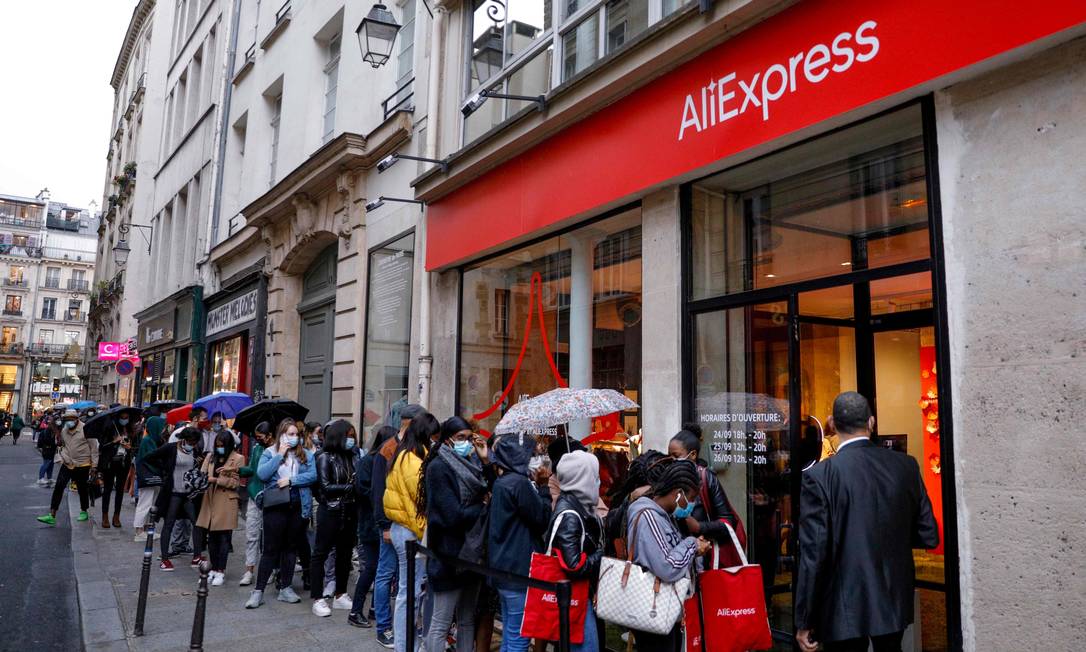RIO DE JANEIRO, BRAZIL – Chinese giant Alibaba Group Holding Ltd’s global e-commerce platform AliExpress plans to increase its sales in Brazil by offering “live sales,” financial services and registering local sellers on its marketplace, its Brazilian head announced on Wednesday, May 26.
With 130% sales growth in Brazil in 2020, the shopping website intends to use these initiatives to strengthen its ties with customers in the country, which has become one of AliExpress’s top 5 sales markets in the world, Yan Di said.

“We will invest in live commerce,” Di said, in reference to a model that involves online entertainment as a tool to generate customer engagement and raise sales. The model currently represents about 10% of e-commerce sales in China and is also growing in popularity in some European markets.
In a preliminary move in this direction, in recent months AliExpress has been increasing its marketing investments in reality shows with high ratings on Brazilian TV, such as “Big Brother Brazil” and “A Fazenda”. On its LinkedIn page, the group recently announced that it is looking to hire a marketing leader in Brazil.
On another front, AliExpress plans to offer financial services in the country, extending products offered today, such as interest-free installment payments. The measure could help the group also face the growing integration between e-commerce and financial services, which in Brazil has attracted major players such as Mercado Libre, Magazine Luiza and B2W.
“Entering the financial ecosystem in Brazil is a matter of time,” said the executive, declining to mention a deadline as to when this should happen. To complement the integration of Brazil in the service, AliExpress is also preparing the registration of local sellers in its marketplace for the near future.
These initiatives are designed as AliExpress also seeks to improve logistics efficiency to reduce delivery times. This month, the company announced deliveries of imported goods in up to 12 days to São Paulo city customers, a service that should gradually reach other cities.
“And we do this with no monthly fees,” said Di, without directly mentioning “Prime,” rival Amazon’s loyalty program, which includes free deliveries only to subscribers.
The comments come at a time when several e-commerce groups in Brazil have also been trying to capitalize on the demand for imports, including Singapore-based Shopee; Uruguay-based Tiendamia; Wish; and Shein. Amazon itself announced this month a line of imported goods with free shipping for Prime customers in Brazil.
In fact, AliExpress has realized that several of its rivals have tried to get ahead in Brazil with products and services plans currently popular in China and other markets, such as the sale of products at cost price and live commerce.
Earlier this month, B2W announced a deal with the European platform OOOOO, which uses streaming to boost sales, preparing its debut in live commerce.
Correios (Brazilian Postal Service)
One of the battle fronts in Brazilian e-commerce, which doubled in size recently due to social isolation measures, ever-shorter delivery times tend to be a challenge for AliExpress, which has Correios as its biggest delivery partner.
The state-owned postal company has lost market share both to private rivals and to e-commerce companies that have chosen to develop their own logistics, such as Mercado Libre, Magazine Luiza, Via Varejo and others.
Consequently, rumors that AliExpress would be interested in buying Correios have been growing, with the federal government planning to privatize it by 2022. According to a study commissioned by the government, Correios’s largest customers in parcels are precisely big e-commerce companies, accounting for 61% of revenue.
Asked about AliExpress’s potential interest in buying Correios, Di said he would not comment on the matter.

